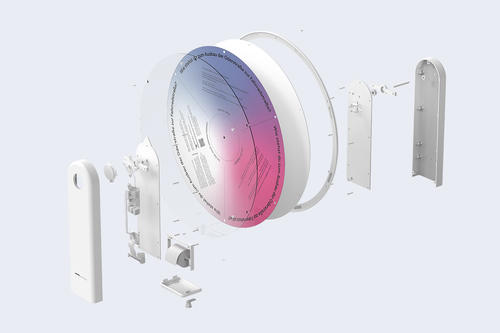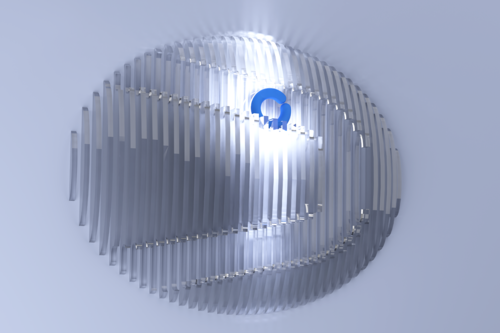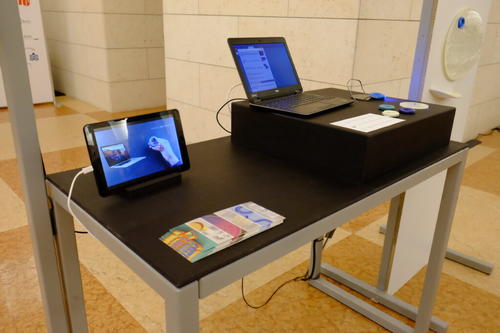Coding IxD - Selected Student Projects
What does digital sovereignty mean, and how can it lead to individual empowerment through design? In Coding IxD, students from the department of computer science at Freie Universität Berlin and the department of product design at Weißensee School of Art and Design Berlin have explored in six interdisciplinary teams the topic of digital sovereignty from multiple angles. The results of Coding IxD has been showcased in an interactive exhibition at the Weizenbaum Institute Berlin from February 17 – 23, 2022 with kindly support of the Digital Autonomy Hub. This semester project was supervised under the direction of Prof. Dr. Claudia Müller-Birn (Freie Universität Berlin), Prof. Thomas Ness (Weißensee School of Art and Design Berlin) and Prof. Judith Glaser (Weißensee School of Art and Design Berlin), and Peter Sörries (Freie Universität Berlin) and is part of the Cluster of Excellence »Matters of Activity. Image Space Material«.
In the following, we present two selected student projects and their vision on how to enable individual sovereignty through so-called "neo-analogue artifacts," i.e., products that represent a synthesis of the virtual and the material in form and function.
Discus
Johannes Schmidtner, Design
Antonios Hazim, Computer Science
Committed citizens are increasingly demanding participation in local projects. The involvement of urban society is also an important concern for the Berlin Senate. But implementation is not always easy: the bureaucratic effort is too high and usually only a few voices are heard. Residents also sometimes learn about projects in their direct surroundings far too late, often only after the planning phase has already been completed and they can no longer contribute their own opinions. Yet participation is a necessary component of successful democratic structures.
The two team members have tackled this observation and created DISCUS. As an autonomous mediator between the administration and the citizens, DISCUS appears in public space for a limited period of time in order to draw attention to a planned project of the city. Placed at the planning site by the administration, DISCUS takes on the task of informing citizens. In a low-threshold survey, citizens are invited to give their opinion on the specific project that is of public interest. By turning the wheel, it is possible to choose between three answers. The most important information about the project, as well as counter-arguments, can then be printed out directly on the device and taken home. This opportunity for participation strengthens the citizens‘ identification with the project and their city. DISCUS invites people to express, argue or reconsider their own opinions, which improves self-esteem and strengthens democracy.
Cookie.JAR
Meret Sonnenschein, Design
Benny Henning, Computer Science
Luis Günther, Computer Science
Cookies are hidden snippets of code that we can find on all websites. But not every users knows that we can distinguish between useful 1st party cookies and unwanted 3rd party cookies. These 3rd party trackers collect personal information based on your browsing behavior, for example, sexuality, emotional status, finances, medical conditions, or credit score. As a result, we are often unaware of the extent of this tracking, and data collection companies might create a digital avatar that makes us identifiable anywhere on the internet.
The team used this assumptions to create Cookie.JAR that serves as both a protective barrier and a storage location. Cookie.JAR prevents third party tracking and stores useful first party cookies. Mobile and thus always by your side, Cookie.JAR is connected to all smart devices and intercepts any kind of trackers. As soon as Cookie.JAR is activated, it connects to the internet, and works in the background. Cookie.JAR recognizes and categorizes the different forms of cookies and reacts accordingly. 3rd party cookies are then blocked and deleted before they reach your device. 1st party cookies can be accepted, blocked, modified or allowed.I n addition, the Share option allows you to exchange your settings for useful 1st party cookies with family and friends.




